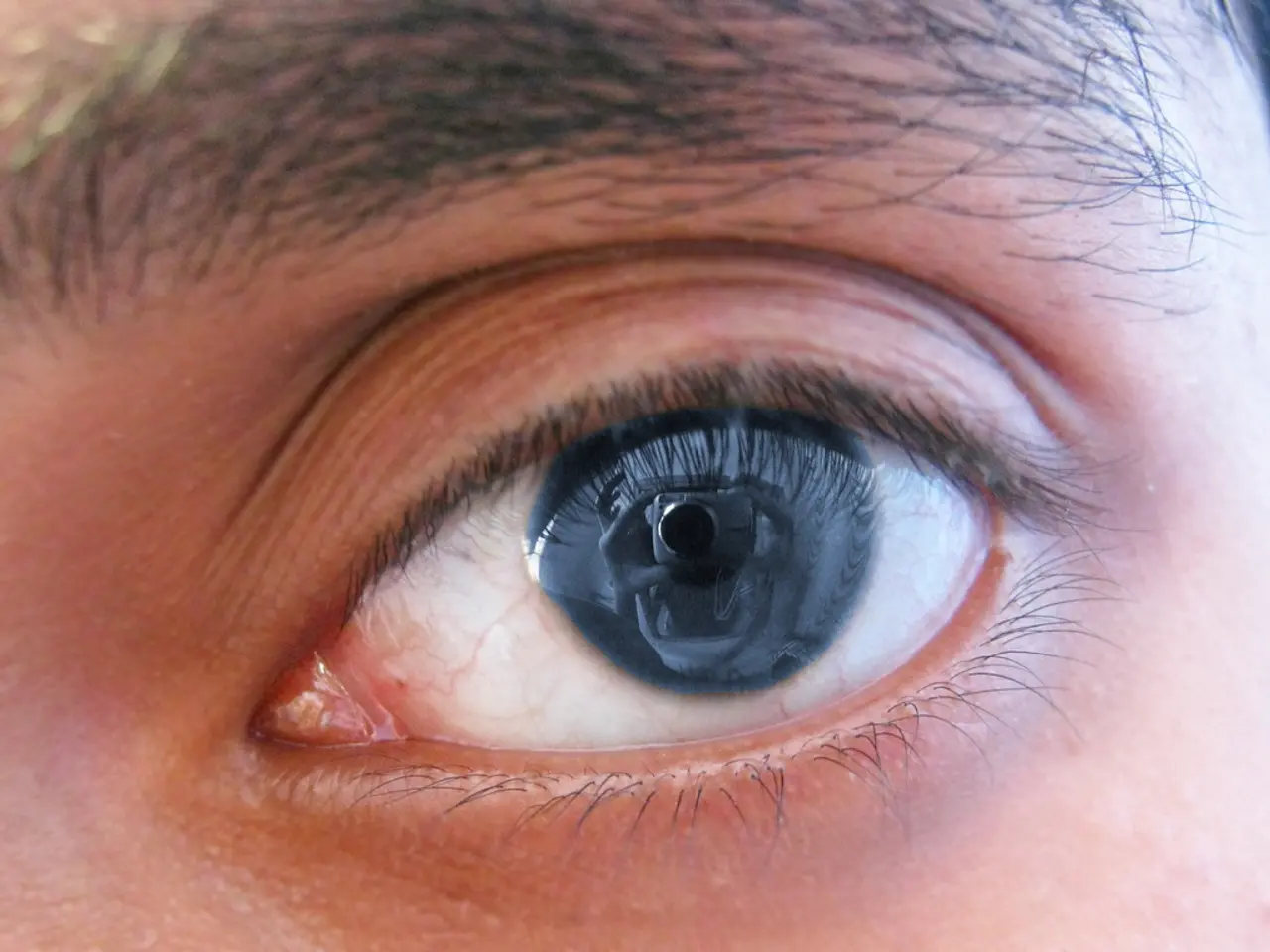Techniques for Enhancing Eye Health for Improved Sight
Protecting your eyesight is crucial for maintaining a high quality of life. Here's a guide to foods and habits that can help keep your eyes healthy and reduce the risk of various eye diseases.
First and foremost, it's essential to avoid secondhand smoke, as it can still harm your eyes. Regular eye exams are also vital for early detection of diseases like glaucoma, macular degeneration, and diabetic retinopathy, when treatment is most effective.
Maintaining a balanced diet and regular exercise can significantly reduce the risk of eye diseases linked to obesity. Leafy greens like spinach, kale, and collard greens are rich in lutein and zeaxanthin, antioxidants that help protect eyes from harmful light and reduce the risk of cataracts.
Beyond the commonly recommended foods like carrots, leafy greens, fish rich in Omega-3s, eggs, and citrus fruits, several other foods are beneficial for eye health. Nuts and seeds, such as almonds, peanuts, hazelnuts, sunflower seeds, provide vitamin E, which helps prevent the breakdown of eye tissue and may reduce the risk of eye diseases like cataracts.
Bell peppers (red and green) are high in beta-carotene, vitamins E and C, vitamin K, and vitamin B6, supporting tissue repair, controlling eye pressure, and protecting the optic nerve important for glaucoma prevention. Papaya contains antioxidants including vitamins A, C, and E, as well as carotenoids like lutein and zeaxanthin, which protect against blue light damage and eye diseases such as cataracts and glaucoma.
Green peas provide antioxidants like lutein and zeaxanthin along with vitamin A, all supporting eye health. Sweet potatoes and pumpkins are orange vegetables rich in beta-carotene and vitamin A, supporting vision and reducing cataract risk. Seaweed offers vitamins A, C, E, and zinc, essential nutrients for maintaining healthy eyes.
Dairy products supply important nutrients that contribute to eye health, while spices like turmeric (curcumin) show antioxidant and anti-inflammatory benefits that may help reduce dry eye inflammation and protect against cataracts.
In addition to a balanced diet, there are several habits that can help maintain eye health. Keeping hydrated, using lubricating eye drops, and following the 20-20-20 rule can help prevent dry eyes. Adults need about 7-9 hours of sleep each night for their eyes to rejuvenate and produce tears that keep them hydrated.
Fish rich in Omega-3s, such as salmon, mackerel, and sardines, help prevent dry eyes and may protect against macular degeneration, a leading cause of vision loss. Overexposure to bright lights can lead to eye strain and discomfort, so it's recommended to adjust lighting and use hats or visors to reduce eye strain from bright lights.
Simple eye exercises like blinking, palming, and eye rolls can help keep eyes moist and relieve tension. Following the 20-20-20 rule (every 20 minutes, take a 20-second break and look at something 20 feet away) helps reduce eye strain from screen use.
It's also crucial to avoid smoking, as it increases the risk of cataracts, macular degeneration, and optic nerve damage in the eyes. Regular eye exams are recommended at least once a year, especially for those over 40 or with a family history of eye diseases.
Dehydration can cause eyes to feel dry, irritated, or gritty, which can lead to discomfort. To avoid dry eyes, drink plenty of water throughout the day. Using a humidifier can help prevent dry eyes in dry climates or air-conditioned environments.
By incorporating these foods and habits into your lifestyle, you can help ensure the long-term health of your eyes and maintain clear vision for years to come.
- To protect your eyes from harmful light and reduce the risk of cataracts, include leafy greens like spinach, kale, and collard greens in your diet.
- For healthy eyes, consider consuming nuts and seeds such as almonds, peanuts, hazelnuts, sunflower seeds, which provide vitamin E.
- Bell peppers (red and green) can support tissue repair, control eye pressure, and protect the optic nerve through their high levels of beta-carotene, vitamins E and C, vitamin K, and vitamin B6.
- Incorporating seaweed into your diet can provide essential nutrients like vitamins A, C, E, and zinc, vital for maintaining healthy eyes.
- By following the 20-20-20 rule (every 20 minutes, take a 20-second break and look at something 20 feet away), you can help reduce eye strain from screen use.






